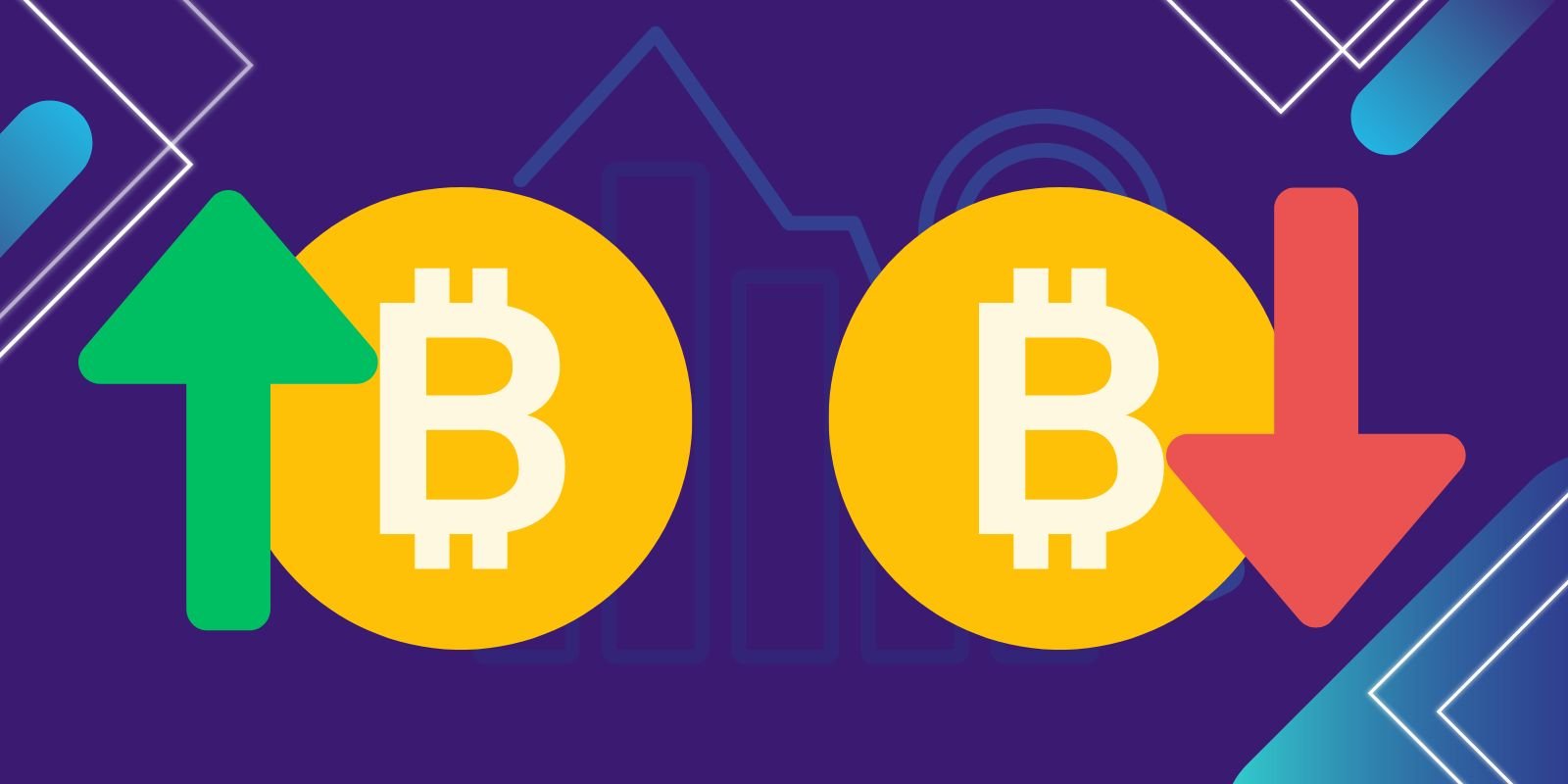Cryptocurrency has revolutionized the financial world, granting access to new possibilities and economic autonomy for those eager to seize them. Since Bitcoin’s emergence in 2009, it has gained immense recognition – leading the way for many other digital currencies that have since appeared on the scene. This is not just an era; this is a whole universe of cryptocurrency! Cryptocurrency brings individuals and businesses a revolutionary level of financial autonomy, low-cost transactions, and unrivaled security compared to traditional banking systems. In this blog post, you will discover how crypto is revolutionizing the economy and financial innovations and learn about the various ways that anyone can capitalize on these benefits for personal gain.
Introduction to the new form of currency
Cryptocurrency is an innovative type of digital or virtual money that uses cryptography to protect safe payments and manage the generation of new coins. Its powerful technology has made it one of the most dependable, secure forms of payment available today. Examples include Bitcoin, Ethereum, Tether, and Ripple. Unlike traditional currency days when there was a dependency on third parties when doing any transaction, now everyone can buy cryptocurrency in Dubai and other parts of the world without involving the third party and get products and services for it Examples include Bitcoin, Ethereum, Tether, and Ripple.
Blockchain technology
From Bitcoin to Ethereum, the blockchain is a digital ledger that captures every single cryptocurrency transaction. As new blocks are added with their own set of recordings and data, this ever-growing database becomes increasingly secure – thanks in part to each block’s cryptographic hash from the previous record as well as an embedded timestamp. Plus, it serves additional purposes like helping Bitcoin nodes identify invalid attempts at reusing coins already spent elsewhere. 
The Era and Field of Financial Innovations
Cryptocurrencies and blockchain technology are paving the way for a groundbreaking future. Blockchain is an incorruptible digital ledger and with cryptocurrencies, there’s no need for banks or any other third-party middlemen to carry out exchanges; not only does this quicken the process but also cuts down on costs! Blockchain technology is revolutionizing how businesses operate. It enables secure, transparent, and tamper-proof transactions without the need for a centralized authority. This has the potential to disrupt many industries including finance, healthcare, and supply chain management. Both blockchain technology and cryptocurrencies are still in their early stages of development, but they have the potential to revolutionize the way we do business online.
Physical currency
Physical currency is quickly becoming a thing of the past. With the advent of digital wallets and mobile payments, it’s becoming more and more convenient to use your phone or another electronic device to make payments. Not only is this more efficient and secure, but it’s also helping to reduce greenhouse gas emissions from traditional payment methods.
Are there any benefits of physical currency
So what are some of the benefits of using digital payments, Here are just a few:
1) Increased security
Credit card information is stored on a secure server, making it difficult for anyone to steal your personal information. Plus, you don’t have to worry about losing your physical wallet or having your credit card information stolen.
2) Reduced fraud
Since there’s no need to carry cash around so it reduces risks. First, when bills are physically present, they can be easily counted and verified. This makes it more difficult for someone to try to scam a business by passing off a fake bill as the real thing. Second, since the physical currency is not digital, it cannot be easily copied.
Digital Currency
Digital currency is a form of currency that is exchanged through digital means. It is not physical, like US dollars or Euros, and it does not exist in the traditional sense. The best-known example of digital currency is Bitcoin. Digital currencies are created through a process called “mining”. In order to create a new digital currency, computer engineers solve complex mathematical problems. This process requires a lot of computing power, and as more people try to mine new currencies, the problems become increasingly difficult to solve. This has led to the development of powerful computers specifically designed for mining cryptocurrencies. 
Fiat currencies and the State
The state has a vested interest in maintaining fiat currencies, as it allows them to control the money supply and taxation. In addition, banks benefit from fiat currencies as it allows them to create money out of thin air (through fractional reserve banking). This benefits the banks by increasing their profits and gives them an advantage over their competitors. Bitcoin and other cryptocurrencies threaten the hegemony of the State and banks, as they eliminate the need for central authorities to control the money supply or act as gatekeepers for financial transactions. This could lead to a more decentralized world where people are less reliant on governments and banks.
The roots of digital cryptocurrency, Bitcoin
In 2009, an anonymous entity under the pseudonym of Satoshi Nakamoto presented Bitcoin as a revolutionary form of digital currency: it would be generated and authenticated by cryptography instead of falling into the hands of centralized authorities. This marked the birth and evolution of Bitcoin which is now renowned among many people worldwide. This idea captured the imagination of many people who saw the potential for a more secure and decentralized form of currency. Over time, Bitcoin has evolved into a powerful global payment system and millions of people buy Bitcoin in Dubai and around the world for privacy and transparency of their transactions.
The Finance and Economics of Bitcoin
Finance
Because bitcoins are limited in number, the price of bitcoins rises when demand increases. The algorithm that creates bitcoin limits the total number to 21 million.
Economics
Bitcoin is highly sought-after due to its scarcity and usability. The finite number of Bitcoin, only 21 million that exist worldwide, guarantees its inherently valuable nature, making it a desirable asset for investors around the world. There will never be more than a fixed figure in circulation, and as that number approaches, the value of each bitcoin will continue to increase. Bitcoin also has utility as a form of payment. As more merchants and businesses begin to accept bitcoin, its value will continue to increase.
1. Bitcoin as a medium of exchange
Bitcoin is a revolutionary form of digital currency that allows for secure and anonymous financial transactions throughout the world. You can simply and easily sell Bitcoin in Dubai or anywhere else to get physical currency. Its singularity lies in its lack of a physical component, making it impervious to any government or central bank manipulation, as well as unrestricted by any given region’s borders – allowing users to conduct business across international lines with ease. With Bitcoin, you’re ensured monetary freedom combined with convenience; all without sacrificing safety or stability.
2. Bitcoin as a unit of account
Bitcoin has been used as a unit of account in some cases, but it is not as reliable as other currencies because its value can fluctuate so much. In addition, its use is limited to certain online platforms. For these reasons, it is not commonly used as a unit of account in everyday transactions.
3. Bitcoin as a store of value
There are a few key reasons why bitcoin is becoming a popular choice as a store of value. First, the limited supply of bitcoins ensures that their value will continue to increase over time as demand for it grows. Second, bitcoins can be easily transferred between parties anywhere in the world without having to go through a middleman. And lastly, bitcoins are extremely secure and difficult to hack or counterfeit. For these reasons, many people are starting to see bitcoin as a viable alternative to traditional currencies such as the US dollar or Euro.
The Pros of cryptos
1. Cryptocurrencies are decentralized
Cryptocurrencies are notably decentralized, which implies that they do not depend on any centralized power such as a government or financial institution. This decentralization offers numerous benefits over traditional fiat currencies, for instance, greater protection from governmental influence or control. The lack of central authority also ensures that cryptocurrencies remain independent and beyond the reach of powerful entities seeking to manipulate them.
2. Cryptocurrencies are global
Cryptocurrencies are a great choice for international transactions and financial inclusion due to their global reach. Unlike regular currencies, which can only be used within one country, cryptocurrencies can be accessed by people anywhere in the world. This helps to create an even playing field when it comes to financial opportunities regardless of where you live or what your bank account looks like!
3. Cryptocurrencies are secure
Cryptocurrencies are also very secure. They use a technology called blockchain, which is a distributed ledger that records all transactions in a transparent and immutable way. This makes it impossible for anyone to fraudulently alter transaction data or create fake coins.
4. Cryptocurrencies are private
Cryptocurrencies bring an extra layer of privacy to the table. Unlike conventional currencies, which are regulated by governments and financial organizations, cryptocurrencies are decentralized– meaning that any transactions made won’t reveal the participant’s identities. This gives users a much-needed sense of security when making online payments without worrying about their personal information being exposed or leaked.
5. Cryptocurrencies have low fees
To conclude, cryptocurrencies generally have incredibly small fees compared to traditional payment methods like credit cards or bank transfers. This is due to the lack of middlemen in transaction processing, such as banks and payment processors.
The Cons of Cryptos
1. They’re volatile
The biggest con of trading in cryptocurrencies is that they are incredibly volatile. The price of Bitcoin, the most well-known cryptocurrency, has fluctuated wildly over the past year, from a high of over $68,000 per coin in 2021 to a low of around $15,000 in 2022. For investors, this volatility can be a major downside, as it makes it difficult to predict how much your investment will be worth in the future.
2. They’re not backed by anything
Another con of trading in cryptocurrencies is that they are not backed by anything. Unlike fiat currencies, which are backed by governments, or commodities like gold, there is nothing backing up cryptocurrencies. This means that their value is entirely based on supply and demand dynamics, which can be very volatile.
3. They’re not widely accepted at the moment
Another downside of trading in cryptocurrencies is that they are not widely accepted. While there are a growing number of businesses that accept Bitcoin and other cryptocurrencies as payment, the vast majority of businesses still do not. This means that if you want to use your cryptocurrency to purchase goods or services, you may have difficulty finding a place that will accept it.
4. They’re subject to hacking
Another con of investing in cryptocurrencies is that they are subject to hacking. Because cryptocurrencies are stored electronically on a decentralized network, they are vulnerable to hacking by individuals with malicious intent. If a hacker is able to gain access to a cryptocurrency exchange or wallet, they can steal the coins stored there and use them for their own purposes.
5. They could be made illegal
One final con of investing in cryptocurrencies is that they could be made illegal by scammers. While Cryptocurrencies are currently legal in most countries, there is no guarantee that this will always be the case. If governments decide to crack down on cryptocurrencies, exchanges could be shut down and investors could lose access to their coins.
Future of Finance
Cryptocurrencies are the future of finance. Bitcoin, Ethereum, and other cryptocurrencies are surging in value and popularity because they offer a more secure, efficient, and transparent way of conducting financial transactions than traditional currency. Additionally, cryptocurrencies are not tied to any government or financial institution, Overall, cryptocurrencies represent a revolutionary new way of conducting financial transactions
FAQs
How does crypto affect the financial market?
Crypto affects the financial market by providing an alternative to fiat currency. Fiat currency is regulated and backed by governments, while crypto is not regulated and not backed by governments. This makes crypto a more volatile investment, as its value is based purely on speculation.
Why are cryptos disruptive financial innovations here?
Cryptocurrencies are disruptive financial innovations because they offer a way for people to store and transfer value that is both secure and efficient. Traditional financial systems are slow and cumbersome, and they rely on outdated technologies that can be easily hacked. Cryptocurrencies, on the other hand, are built on state-of-the-art security technologies that make them virtually impossible to hack.
Final Words
The era of digital money or cryptocurrency is one of the financial innovations. Technological progress cannot be stopped, and the traditional banking system has to adapt to new conditions. Otherwise, it will soon become ineffective. Bitcoin and other cryptocurrencies are a completely new type of asset that is not controlled by any authority. Their rate depends only on supply and demand in the market, which makes them even more volatile than ordinary currency pairs. Nevertheless, many people believe in the bright future of virtual coins and continue to invest in them despite all the risks.







